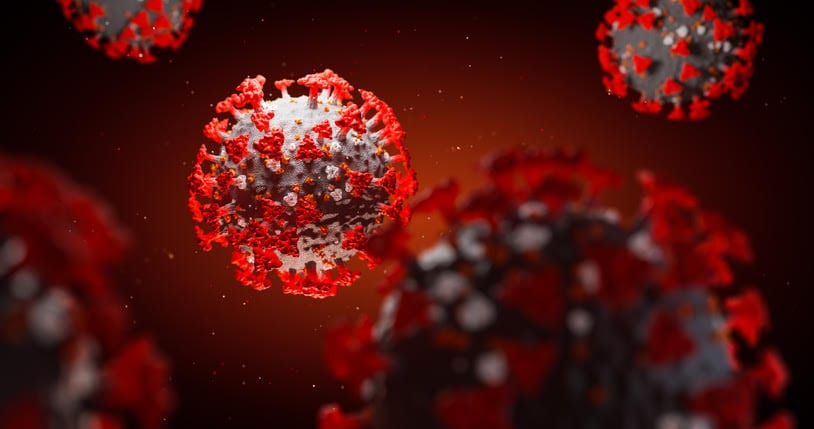Who knew we would be talking about Corona in such a derogatory fashion? Possibly, for the rest of our lives, we will recall the days when COVID19 became a part of our vocabulary. No matter how you perceive the issue or where you live, this pandemic has affected your life. Perhaps you are part of a demographic highly susceptible to the virus or have family that is in harm’s way. Maybe you are a small business owner or self employed having financial hardships. There is a chance that you have been forced into isolated through suggestions of the government. Regardless of the specifics, you probably have had an increase in your levels of stress, and this can lead to relapse.
Coronavirus (COVID19)
Since a vaccine is not available and treatments are limited, most are left to simply address the symptoms. Current measures to slow the pandemic are to self-administer staying at home and observing a “6 foot” rule when near people. Other measures exist, but I mention these to illustrate the amount of isolation being requested in order to reduce the spread of the virus.
Stress and Cortisol
As humans, we have a built-in system for regulating stress and emergencies. It is vital for our survival and needed to keep us safe. Imagine trying to fight off a saber toot tiger without some needed adrenaline and superhuman strength! A second, usually lesser known hormone used to assist us in times of stress is cortisol.
Think of cortisol as nature’s built-in alarm system. It’s your body’s main stress hormone. It works with certain parts of your brain to control your mood, motivation, and fear. It’s best known for helping fuel your body’s “fight-or-flight” instinct in a crisis. It is very important to note that cortisol is produced during times of actual or PERCEIVED stress. You read that correctly…we produce cortisol even by thinking about something that could put us in danger.
Related to the recent threat of COVID19, our bodies are most likely experiencing stress and elevated cortisol levels. But here’s the problem:
Cortisol also causes:
- An increase in blood pressure and stress on the heart
- An increase in your blood sugar
- A decrease in blood circulation especially the digestive tract
- A decrease in your growth and sex hormones
- Suppression of your immune system, and
- An increase in the thickness and stickiness of your blood.
And here’s the big one. Are you ready for this? Elevated cortisol levels cause anxiety! This may be obvious based on the symptoms listed above, but the source of the anxiety is a chain of events that begin with stress!
Stress and Relapse
Let’s tie this together with perspective to relapse and substance use disorders (SUD). This COVID19 pandemic has created stress. This stress has caused excess amounts of cortisol to be released into our system. The excess cortisol is causing anxiety!
A person affected by substance use disorder can easily be triggered towards relapse or drug use by anxiety. Without addressing anxiety and reducing the daily levels of cortisol, relapse is a very real risk!
A very simple remedy to help with the impact of COVID19 is to take your MEDS every day.
Get back to your MEDS
Hopefully obvious, MEDS is an acronym and I am not actually advocating taking a medication. Healthy daily activities are critical to managing mental and physical health. Balancing stress and reducing cortisol levels can be achieved by practicing the following:
- Meditation – Multiple studies have demonstrated the benefit of meditation for calming the mind and the nervous system. Specifically, a study at Harvard Medical school showed that over eight weeks of practicing mediation, for 30-minute intervals, improved brain function. That level of meditation showed to increase in the gray matter of the hippocampus (responsible for learning/memory/self-awareness/compassion) and reduction in the gray matter of the amygdala (responsible for fear/stress/anxiety).
- Exercise – At a minimum, find a way to get at least 30 minutes of walking into your daily schedule. Take that walk outside with music in your ears and you are enhancing your ability to reduce cortisol and anxiety. Many other forms of exercise can lift your spirits also: hiking outside, yoga, biking, rowing, lifting weights are a few, but the options are limitless. The key is to get our heart rate increased and lungs filled with fresh air.
- Diet – Sounds obvious, but significantly decrease or eliminate all processed foods, carbonated drinks, sugar, meats and dairy from your diet. Increase rations of vegetables, fruits, nuts and seeds. Books have been written on this topic, so I will spare the novel at this time, but the connection of nutrition and mental health is highly correlated.
- Sleep – Visualize this: Growth hormone (GH) is like a Pacman gobbling up cortisol. When does your body produce growth hormone? You guessed it, while you sleep. Sleep is vital to our mental health and cleansing our body of cortisol and the brain of toxins. Be sure to establish a sleep ritual that calms the nervous system and creates a routine you can maintain every day.
Conclusion
During this time, a renewed focus on our health and daily activities is vital. Now, more than ever, our personal recovery depends on maintaining mental and physical well-being. In the face of so much negative news and the spread of a new illness, taking control of our MEDS helps prevent relapse. If relapse feels inevitable or has already started for you, please consider Pinelands as a lifeline for your recovery needs and support.
